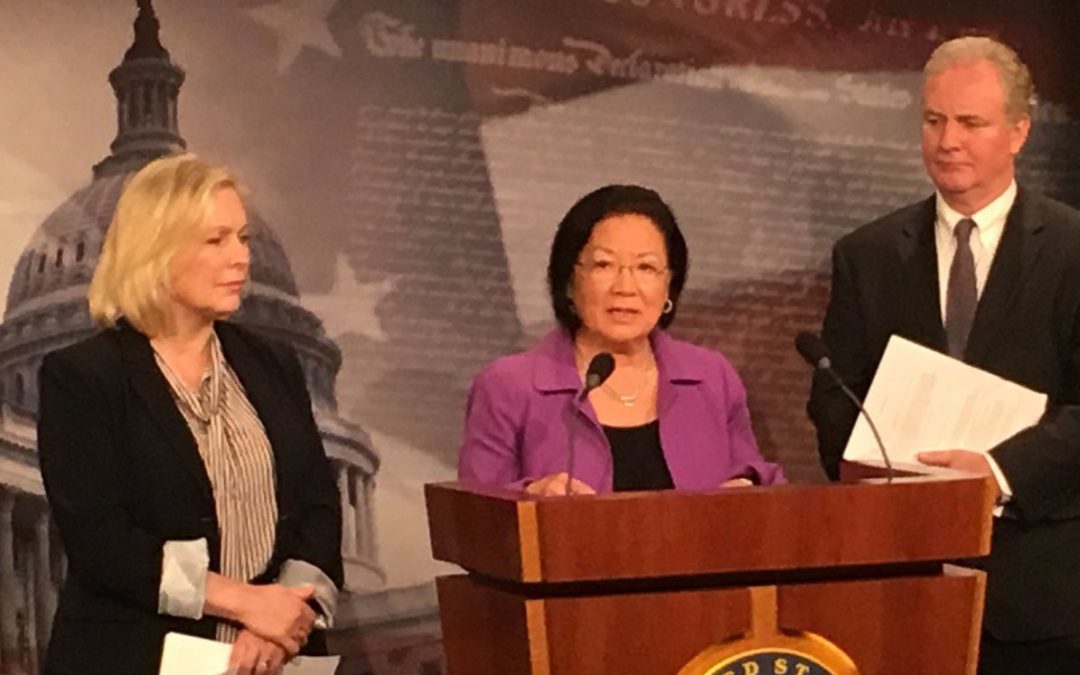WASHINGTON — Senate Democrats, led by Sen. Mazie Hirono, D-Hawaii, introduced a bill Wednesday that would close a loophole that enables domestic abusers in the military to purchase guns.
Under federal law, domestic violence offenders are supposed to be barred from buying guns. Unlike the civilian justice system, however, the military justice system does not classify domestic violence as its own unique crime. As a result, criminals whose cases are handled by the military justice system are tagged as perpetrators of assault rather than of domestic violence, meaning they can still obtain firearms.
Hirono’s bill would require the military to classify domestic violence as its own unique crime. It would also require the military to update FBI conviction database records within three days of the conviction.
“This bill does not create a new crime or establish new gun restrictions,” Hirono said. “It simply closes a loophole that never should have existed in the first place.”
The bill is a response to a Texas shooting earlier this month in which 26 people were killed by former U.S. Air Force member Devin Patrick Kelley. Kelley was court-martialed in 2012 for assaulting his wife and stepchild — a conviction that should have prevented him from legally owning a firearm.
However, information about Kelley’s conviction was not entered into the FBI conviction database used in gun background checks — and as a result, he was able to purchase four guns in the years leading up to the mass shooting.
“We have to close the loophole that let the killer in Sutherland Springs buy his weapon, even after committing horrific acts of domestic violence against his family members, and even after the military knew about them,” Sen. Kirsten Gillibrand, D-N.Y., said.
Experts point to a link between domestic violence and mass shootings. According to the National Coalition Against Domestic Violence, over half of mass shootings are “directly related” to family violence.
“It is time that as a nation, we take action to prevent further domestic terrorism,” said NCADV director Ruth Glenn.
Without support from some Senate Republicans, however, the bill cannot pass. As of Wednesday, no members of the GOP had signed on to support the bill.


